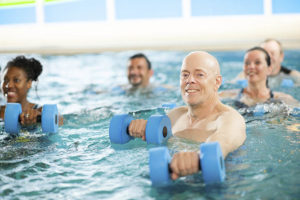One of the most challenging tasks the human brain performs is something most of us take for granted: speech. Seven activities that use speech and benefit brain vitality can also improve brain performance.
Common situations that attest to the brain’s difficulty with speech include a toddler trying to speak for the first time or someone trying to regain speech after a stroke. The speech center of the brain is called the “Broca’s area,” named after the 19th-century French doctor Paul Broca. He discovered it in the left frontal lobe while working with stroke patients.
Speech is vigorous exercise for the brain
Why is speech such a big deal for the brain? A few reasons include:
- Respiration and speech have to be integrated.
- Large areas of the brain have to work together, so it is a whole-brain workout.
- More muscle engagement is required for speech than for any other motor output.
Moveover, Broca’s area has proven to be a cornerstone of brain organization in various ways. This speech area works closely with the listening center of the brain, the Wernicke’s area (located nearby in the left temporal lobe).
Social interaction benefits speech muscles and brain health
Using your voice and listening to other people’s voices are key aspects of social engagement, providing health benefits as well. Social isolation, now considered the number one public health problem in America, cuts the brain off from this vital flow of listening and speaking.
Therefore, we need to be around others to exercise our speech muscles—and our brains. In addition to listening and speaking, eye contact, fun, sharing, smiles, touch, and trust forge strong social bonds that rejuvenate the brain’s vitality.
Seven activities that use speech and benefit brain vitality
So for brain health and speech, the best advice boils down to use it or lose it. Avoid long periods of time in front of a TV, computer or book where there is no social interaction. The best exercise for your vocal equipment involves social interaction as well. These seven activities use speech and benefit brain vitality:
- Acting or play reading
- Discussing books or ideas in a group
- Interpersonal mentoring or volunteer work
- Learning a new language in a class
- Public speaking
- Singing or chanting
- Having a 2-way conversation with a friend
None of this brain work requires you to work up a sweat, so it is a perfect complement to walking and other physical activity. Get busy!
Click here additional brain training activities that utilize speech.
To learn more about motor output and brain exercise, see Better with Age: The Ultimate Guide to Brain Training by Phyllis Strupp.




